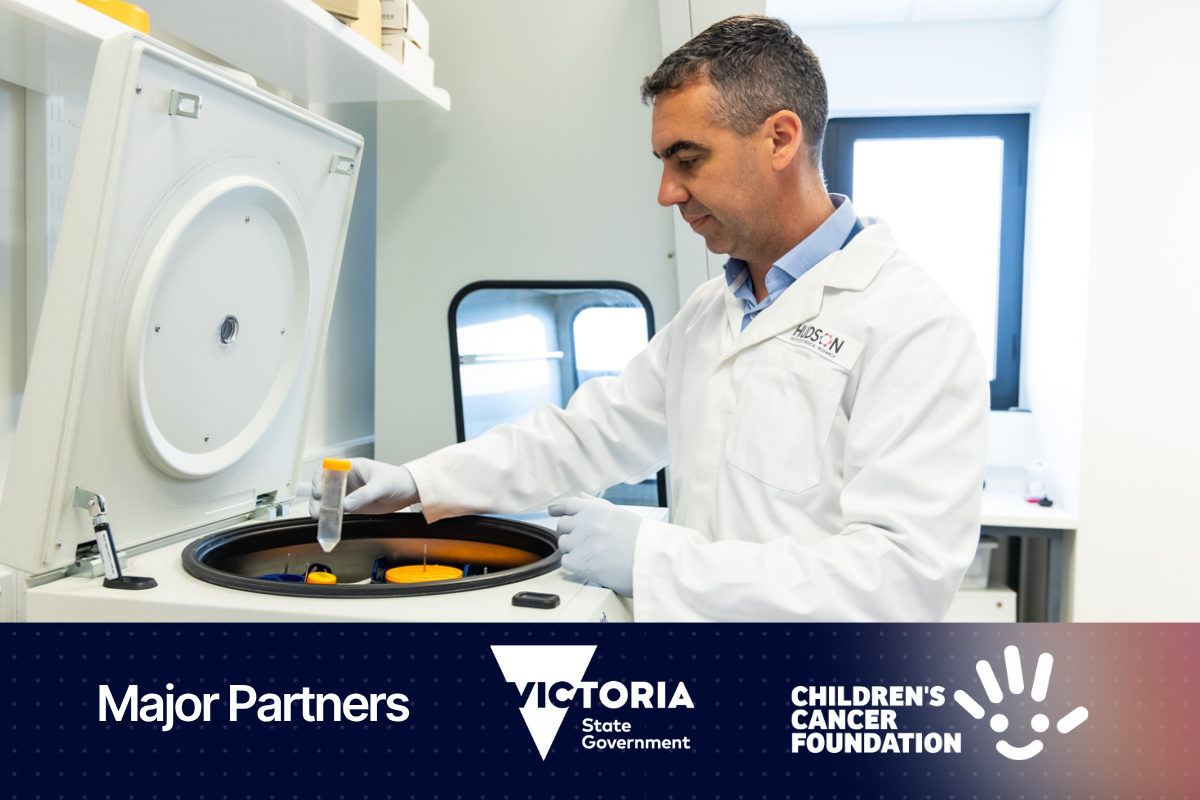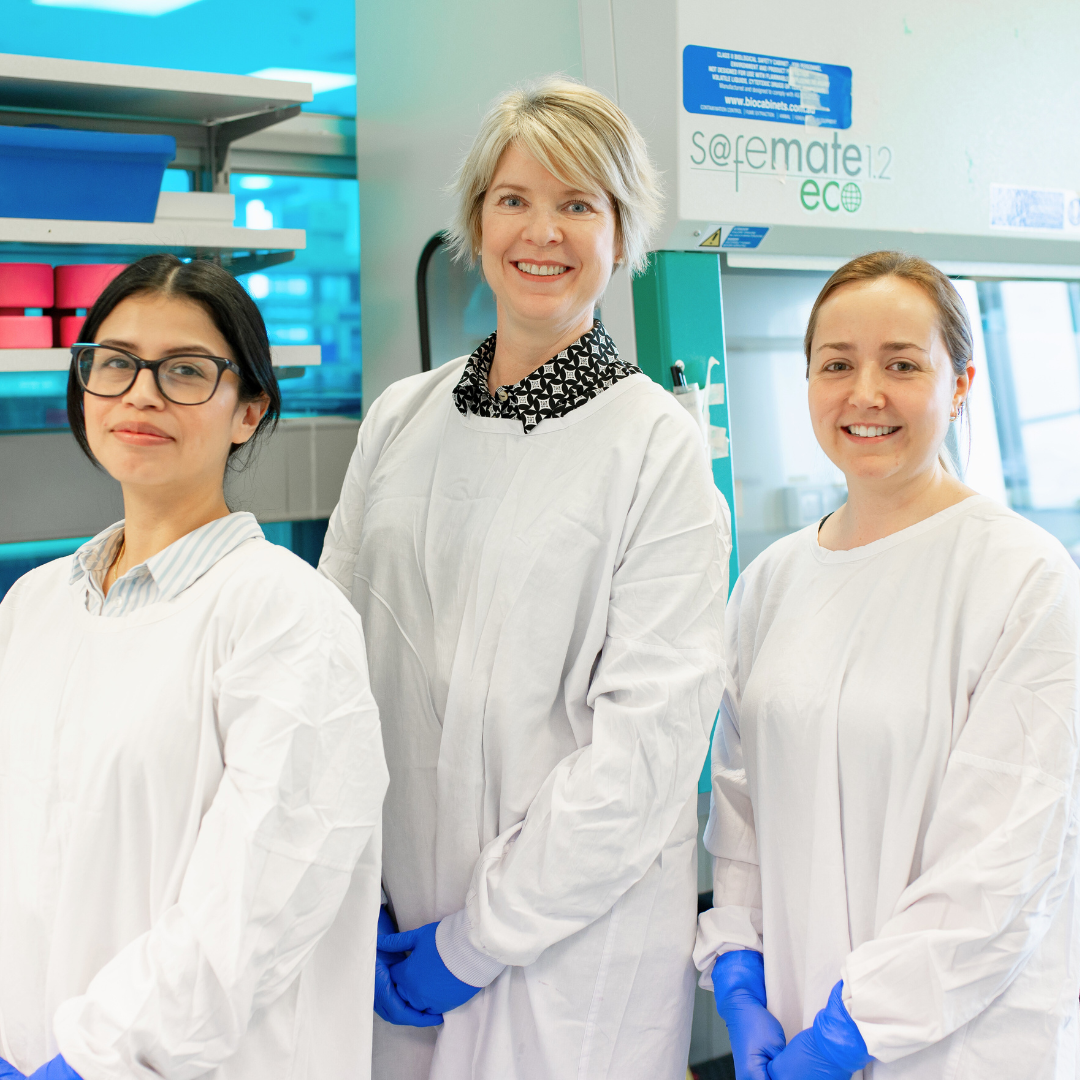Monash Children’s Cancer Biobank
Collecting and storing samples from children with cancer for research and to enhance the standard of care.

The challenge
The Monash Children's Cancer Biobank (MCCB) has experienced tremendous growth in patient participation and sample deposits since its establishment in 2011, positioning it as a critical resource for childhood, adolescent, and young adult cancer research. Building on this momentum, recent gap analyses conducted over the past two years have identified key areas for development, including the formalisation of systems for third-party researcher access and the implementation of comprehensive quality control measures.
Investing in these improvements represents an exciting opportunity to strengthen MCCB’s operational systems and processes, safeguard data integrity and regulatory compliance, and support world-class translational research and optimal patient care. Without targeted funding support to address these critical needs, the MCCB’s long-term sustainability and its ability to deliver high-quality, impactful research outputs may be compromised.
The research
Monash Children’s Cancer Biobank (MCCB) is a collaborative initiative that acts as a structural pillar of clinical care and research for children, adolescents and young adults diagnosed with cancer. Our mission is to collect and store samples from children with cancer to enable and contribute to both local and international laboratory and clinical research, and to enhance the quality of standard of care for our patients at Monash Health’s Children’s Cancer Centre.
The biobank houses a range of samples, including blood, bone marrow, cerebrospinal fluid, solid tumour tissue, and normal tissue. These samples are stored using specialised methods to maximise their potential uses/benefits, both directly to the patients these samples come from and through research participation and development. Samples stored in MCCB are routinely used to run additional standard of care tests, to enrol our patients into precision medicine programs or clinical trials, and to provide to ethically approved research projects like the Hudson Institute of Medical Research’s Next Generation Paediatric Cancer Therapies Program.
Monash Children’s Cancer Biobank (MCCB) was established in 2011 and runs with in-kind support from Monash Health and the Hudson Institute of Medical Research. Exponential growth in the number of patients choosing to participate in MCCB and the number of samples deposited has been observed. The increase in demand for this project has highlighted the need for dedicated funding to continue operations, alongside optimising quality, sustainability and impact.
Over the past two years, a series of gap analyses has identified opportunities for improvement within the MCCB. In response to rapid program growth, the team is looking to expand operational focus beyond essential functions to include comprehensive quality and data review processes.
Key improvement initiatives will include a full sample audit, reconciling and updating RedCap records to reflect current inventory accurately, and undertaking thorough data cleaning to ensure all patient histories, consent forms, and clinical information are complete and current.
The team will also undertake a thorough review and update of all standard operating procedures to ensure they are aligned with current practices and operational requirements. Protocols will be modernised to reflect contemporary workflows, and efforts will be made to secure ethical approval for new processes, such as the offsite storage of historical documents.
Lastly, the team will establish a formal, standardised sample access procedure to ensure the fair and transparent distribution of biospecimens to third-party researchers. Comprehensive quality control measures will be developed and formally documented to uphold high standards in sample management, including a clear cost recovery schedule for sample distribution to ensure financial sustainability of the biobank.
In addition to the above, these grant funds will cover two years’ of MCCB operational costs, allowing us to continue running this program whilst undertaking the abovementioned quality improvement activities.
The impact
The quality improvement initiatives are expected to result in robust, up-to-date procedures that are fully compliant with regulatory and ethical standards. By strengthening operational practices and enhancing data integrity, the work will improve the MCCB's overall operational effectiveness. These improvements will underpin database upgrades and support more accurate information management, ultimately enabling high-quality translational research, informed clinical decision-making, and elevated standards of patient care. As a result, the MCCB will be well positioned to facilitate advancements in screening, early detection, and the development of innovative treatment approaches, supporting the continued growth and impact of the biobank.
At the end of this two-year funding period, quality assurance and improvement activities will be completed, resulting in a higher-quality program available to patients, clinicians, and scientists. The continuation of MCCB funding for operational activities will allow participation to continue to be offered to all new patients who present to Monash Children’s Cancer Centre. Over the next two years, this is anticipated to be up to 200 new patients in total. Upscaling and the development of new project management resources at MCCB will significantly enhance operations, efficiency and quality during this funding period and into the future.
Children's Cancer CoLab Funding Information
Grant/s Awarded (Total): $360,000
Project timeline: June 2025 – June 2027
Impact Program/s: Innovation Accelerators
Scientific Review: Children’s Cancer CoLab Scientific Advisory Committee
Lead Institution: Monash Health
Collaborating Institution: Hudson Institute of Medical Research
Lead Researcher: Dr Michelle Martin
Contact us to find out more about this project
Articles featuring
Monash Children’s Cancer Biobank
Read our latest news
More Funded Projects
Grant Funding
Our program funding is allocated through a competitive process underpinned by robust expert review. We adopt scientific rigour to evaluate each proposal’s potential for impact and alignment with identified childhood cancer research and care priorities.





